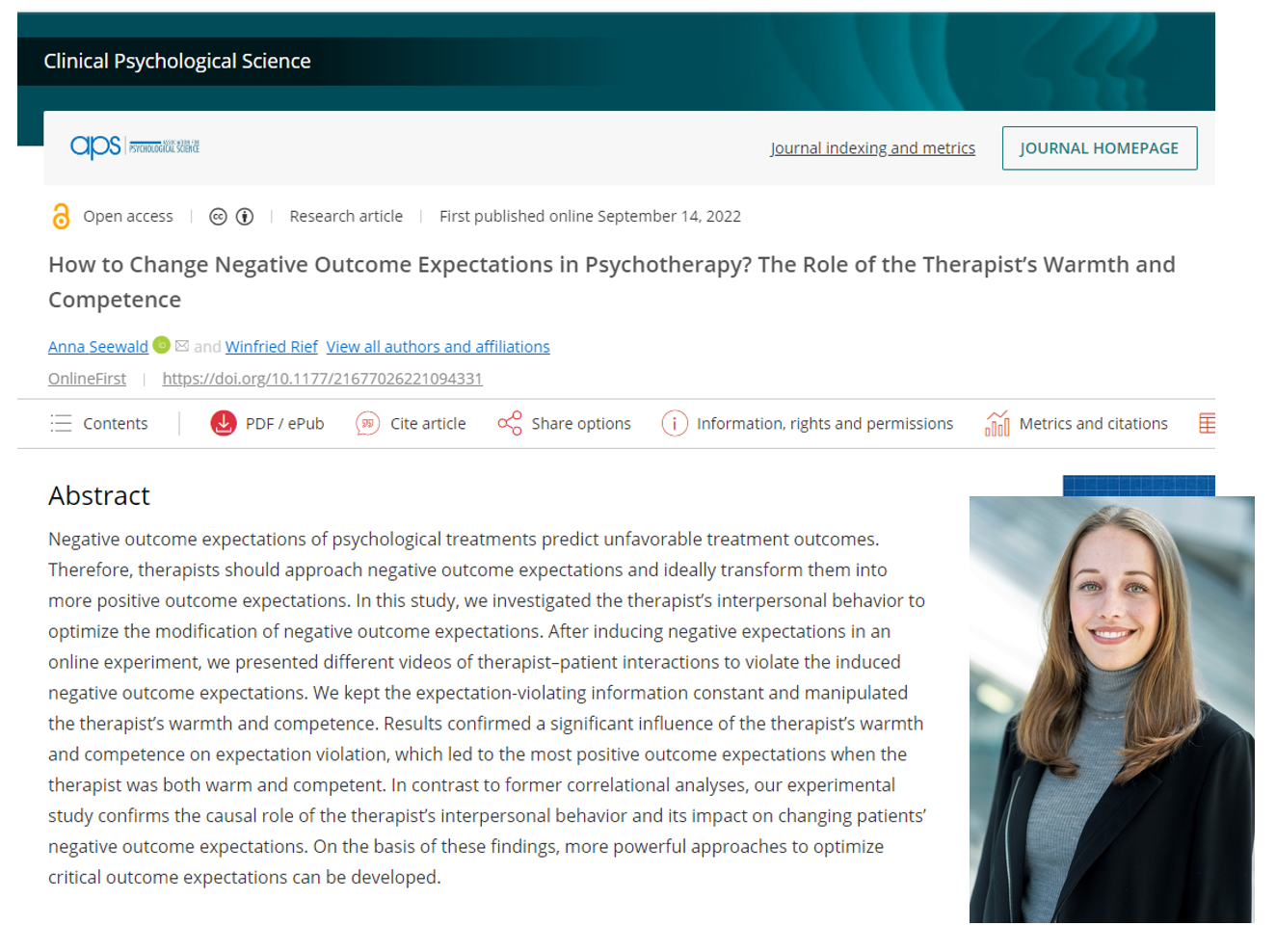Pessimistic expectations about whether psychotherapy is helpful are not uncommon among patients - and they can affect the success of therapy. But how can psychotherapists change these concerns? This question was addressed by the research team of Prof. Winfried Rief and Anna Seewald from the University of Marburg. Their results have now been published in Clinical Psychological Science and commented on in Nature Reviews Psychology.
"Warmth and competence of therapists are crucial for the change of negative therapy expectations," psychologist Anna Seewald from the Department of Clinical Psychology and Psychotherapy at the University of Marburg summarizes the result. In an online study, Anna Seewald and Prof. Winfried Rief induced negative expectations in study participants: They listened to a skeptical patient who told of a weak study record and low effectiveness of psychotherapy in coping with stress. In the next step, participants then watched a video in which a therapist communicated positive information to a patient about the effectiveness of psychotherapy for stress. The emotional warmth of the communication and the therapist's charisma of competence were varied. After the videos, participants gave their expectation about whether psychotherapy could help them. The initial negative expectation was best changed when the therapist in the video communicated high competence and exuded strong warmth. "This result can show therapists a helpful behavioral guideline when facing patients with a negative expectation," Anna Seewald explains.
Prof. Ulrike Bingel, neurologist at the University Hospital Essen and spokesperson of the Collaborative Research Center SFB/TRR 289 "Treatment Expectation", emphasizes that these research results are not only relevant for psychotherapy, but are also of great importance in other areas of medicine, "because negative expectations, fears and worries play a major role in many patients with chronic or severe acute diseases". Further research is planned following these exciting new findings.

